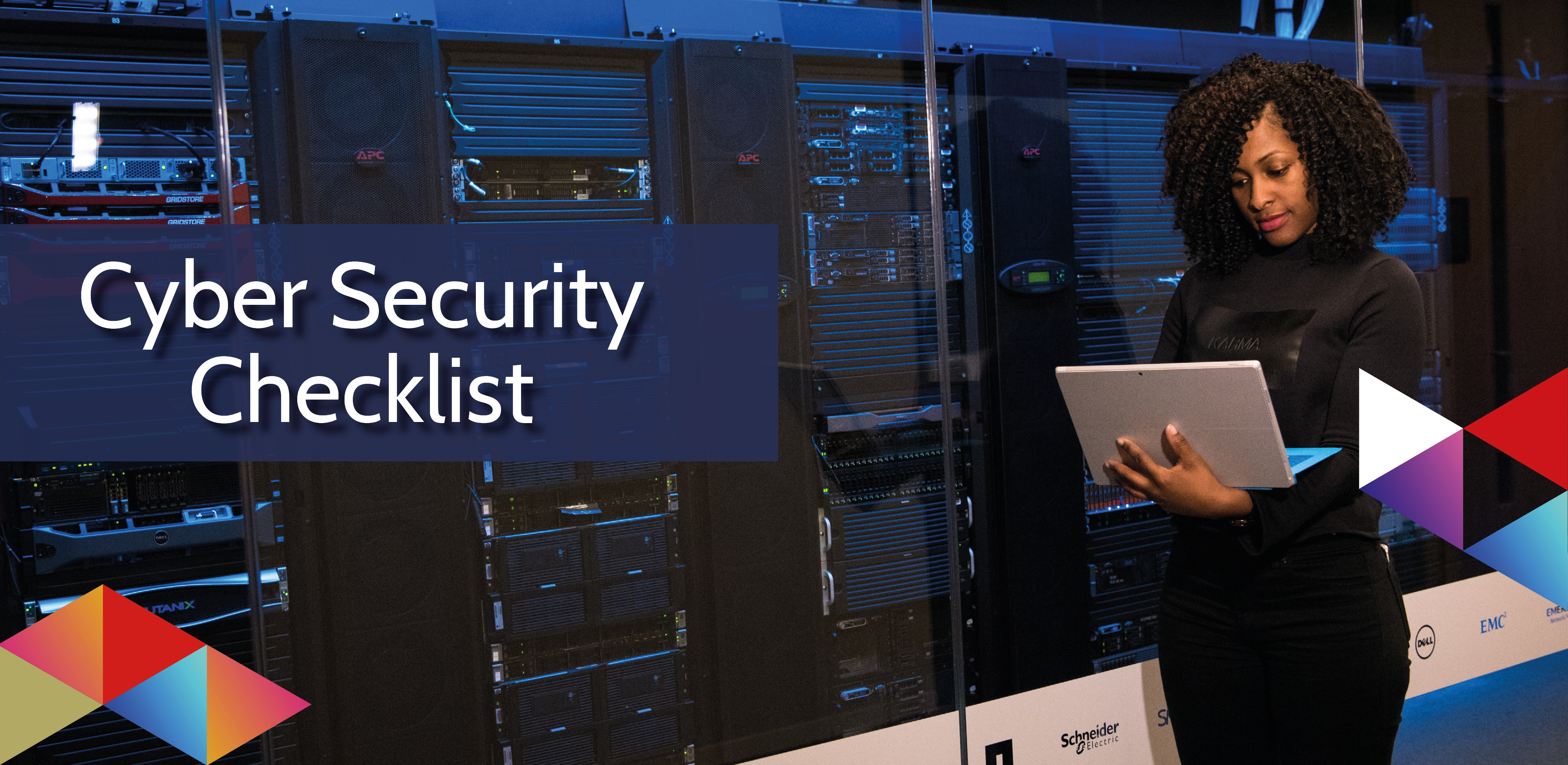Cyber security awareness month may have ended but at Datacentreplus we understand the real threat this poses.
With the threat of cyber attacks growing by the day implementing a few basic cyber security measures can help to reduce the chances of a successful cyber attack.
Here is a basic checklist to get you started on your journey to becoming cyber secure.
Strong Password Policy
Implementing a strong password policy will help to provide an extra layer of security to all your accounts. Often a weak password can be the biggest gap in a business’s cyber security defences. Ensuring that all members of staff stick to this policy will make your systems harder to breach.
If you would like some advice on what should be in your strong password policy we have created this video and this blog that outlines a few policies we think you should include.
Multi-factor authentication
Enabling multi-factor authentication on all your accounts will mean that anyone accessing the account must go through several authentication steps before gaining access to the account. This is usually in the form of a third-party authenticator that will give you a temporary access code to access the account.
The authenticator can be attached to either an app, your phone number or your email. This means that in order to access the account the user will need access to multiple areas to log in. This should make it more difficult for a hacker to breach your account.
Cyber security training
Providing basic cyber security training for all staff will help them to become alert to what threats to look out for and the knowledge of how to negate these attacks.
A massive part of cyber security training is being aware of the current trends in cyber attacks and what to look out for.
Incident Plan
No matter how cyber secure you are there is always the possibility that your defences can be breached and your system compromised. We recommend always having an incident plan in place in the event of a breach.
This plan should include an easy-to-follow procedure that all staff can initiate with ease. This plan should also include all necessary contact details of the staff that needs alerting.
A well-implemented and effective plan should help to reduce the amount of data breached whilst speeding up the recovery time.
Update Systems
Keeping all your systems up to the latest software update/patch will help to keep your systems secure. Often these updates will patch over vulnerabilities in the system so keeping these up to date will strengthen your defences.
Software updates can often be set to automatically update which can help you to keep on top of this.
Antivirus Software
We always recommend installing the latest antivirus software on all of your devices. This is a simple way to defend yourself from an array of cyber attacks.
Backup your data
Creating regular backups of all your data/systems is always a good idea. This will mean if your systems have been breached and encrypted you can easily recover this to the latest backup. Cyber attacks such as ransomware attacks can pose less of a risk with the policy in place.
It’s important where you store your backups. Storing them on both external hard drives and cloud-based storage will ensure multiple versions of the backup in multiple locations.
Zero Trust Policy
When it comes to cybersecurity a zero-trust approach is always best, if you are unsure of a source or website it’s always best to not engage with it.
Implementing this can help to avoid common cyber security mistakes such as opening a link in a malicious email.
Summary
Implementing this cyber security checklist will help you to increase the protection of your systems however you are still at risk. If you would like to further your defences get in touch to see how we can help!
Get in touch by email at hello@datacentreplus.co.uk or give us a call at 0161 464 6101.
Alternatively, you can head to our site!


